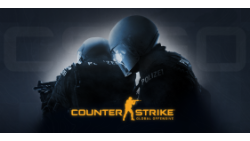AMD Radeon HD 7480D vs NVIDIA GeForce GTX 780 Ti
The GeForce GTX 780 Ti has 2,593% better performance than the Radeon HD 7480D for the 3DMark 11 Performance GPU benchmark.
The GeForce GTX 780 Ti has 104% better value for the money than the Radeon HD 7480D for the 3DMark 11 Performance GPU benchmark.
Summary
About the AMD Radeon HD 7480D GPU
The AMD Radeon HD 7480D is an end-of-life integrated graphics card that released in Q4 2012 with a MSRP of $53. It is built on the TeraScale 3 GPU microarchitecture (codename Scrapper Lite) and is manufactured on a 32 nm process.
Cores and Clock Speeds
The HD 7480D includes 128 stream processors (SPs), the processing units for handling parallel computing tasks. The GPU operates at a core clock speed of 614 MHz and can dynamically boost its clock speed up to 724 MHz. Complementing the processing units are 8 texture mapping units (TMUs) for efficient texture filtering and 4 render output units (ROPs) for pixel processing.
Compatibility & Power Consumption
The GPU has a thermal design power (TDP) of 65 W. A power supply not strong enough to handle this might result in system crashes and potentially damage your hardware.
Benchmark Performance & Value
The HD 7480D has the 532nd best 3DMark 11 Performance GPU score among the 567 benchmarked GPUs in our database. It achieves 0.45% of the performance of the best benchmarked GPU, the NVIDIA GeForce RTX 5090. Its 580 score and $53 launch price (MSRP) gives it a performance per dollar of 10.94. This is the 109th best in value for the 3DMark 11 Performance GPU benchmark.
About the NVIDIA GeForce GTX 780 Ti GPU
The NVIDIA GeForce GTX 780 Ti is an end-of-life desktop graphics card that released in Q4 2013 with a MSRP of $699. It is built on the Kepler GPU microarchitecture (codename GK110B) and is manufactured on a 28 nm process.
Memory
The GTX 780 Ti has 3 GB of GDDR5 memory, with a 1,753 MHz memory clock and a 384 bit interface. This gives it a memory bandwidth of 336.6 Gb/s, which affects how fast it can transfer data to and from memory. GPU memory stores temporary data that helps the GPU with complex math and graphics operations. More memory is generally better, as not having enough can cause performance bottlenecks.
Cores and Clock Speeds
The GTX 780 Ti includes 2,880 CUDA cores, the processing units for handling parallel computing tasks. The GPU operates at a core clock speed of 875 MHz and can dynamically boost its clock speed up to 928 MHz. Complementing the processing units are 240 texture mapping units (TMUs) for efficient texture filtering and 48 render output units (ROPs) for pixel processing.
Compatibility & Power Consumption
The GTX 780 Ti occupies 2 PCIe expansion slots. It supports DVI, HDMI 1.4a, DisplayPort 1.2 display connections. NVIDIA recommends a power supply of at least 600 W to handle the GPU's thermal design power (TDP) of 250 W.
Benchmark Performance & Value
The GTX 780 Ti has the 158th best 3DMark 11 Performance GPU score among the 567 benchmarked GPUs in our database. It achieves 12.04% of the performance of the best benchmarked GPU, the NVIDIA GeForce RTX 5090. Its 15,619 score and $699 launch price (MSRP) gives it a performance per dollar of 22.34. This is the 94th best in value for the 3DMark 11 Performance GPU benchmark.
General Info
General overview of the GPU, including details like its manufacturer, release date, launch price, and current production status.
| Info | Radeon HD 7480D | GeForce GTX 780 Ti |
|---|---|---|
| Manufacturer | AMD | NVIDIA |
| Architecture | TeraScale 3 | Kepler |
| Market Segment | Integrated | Desktop |
| Release Date | Q4 2012 | Q4 2013 |
| Launch Price (MSRP) | $53 | $699 |
| Production Status | End-of-life | End-of-life |
| Shop | Check Price | Check Price |
Gaming Performance
Select a game to compare FPS metrics



FPS Benchmarks
This table showcases the average frame rate (FPS) achieved both GPUs in at various resolutions. Frame rate is a crucial indicator of how smoothly the GPU can run the game. A higher FPS generally translates to a smoother gameplay experience.
- Frames Per Second
 The Witcher 3 | Radeon HD 7480D | GeForce GTX 780 Ti |
|---|---|---|
| Low - 720p | 10 FPS | -- |
| Medium - 768p | -- | -- |
| High - 1080p | -- | -- |
| Ultra - 1080p | -- | -- |
| QHD - 1440p | -- | -- |
| 4K UHD - 2160p | -- | -- |
Compare Frames Per Second (FPS)
The average frame rate (FPS) in can be compared to similar GPUs to assess relative performance. Generally, higher FPS results in a smoother gameplay experience.
| GPU | Frames Per Second | |
|---|---|---|
| Our database does not have enough FPS data to compare with other GPUs. | ||
Compare Cost Per Frame
The average cost per frame in can be compared to similar GPUs to assess relative value. Generally, a lower cost per frame implies better value for your money.
| GPU | Cost Per Frame | |
|---|---|---|
| Our database does not have enough data to compare the FPS per dollar with other GPUs. | ||
Benchmark Performance
The GeForce GTX 780 Ti has 2,593% better performance than the Radeon HD 7480D for the 3DMark 11 Performance GPU benchmark.
The Radeon HD 7480D is ranked 532nd with a score of 580, and the GeForce GTX 780 Ti is ranked 158th with a score of 15,619.
The GeForce GTX 780 Ti has 104% better value for the money than the Radeon HD 7480D for the 3DMark 11 Performance GPU benchmark.
The Radeon HD 7480D is ranked 109th with a performance per dollar of 10.94, and the GeForce GTX 780 Ti is ranked 94th with a performance per dollar of 22.34.
Relative Performance
The average score in the benchmark test can be compared to similar GPUs to assess relative performance. Generally, powerful GPUs tend to have higher scores.
| GPU | Benchmark Performance | |
|---|---|---|
| Radeon R9 290X | 16,167.5 | +2,688% |
| GeForce GTX 970 | 16,033 | +2,664% |
| GeForce GTX 780 Ti | 15,619 | +2,593% |
| Arc A380 | 13,892 | +2,295% |
| GeForce GTX 1650 | 13,759 | +2,272% |
| Radeon HD 7660D | 1,433 | +147% |
| Radeon HD 7560D | 1,076 | +86% |
| Radeon HD 7480D | 580 | |
Relative Value For Money
The average performance per dollar in the benchmark test can be compared to similar GPUs to assess relative value. A higher score implies a better value for your money.
| GPU | Performance Per Dollar | |
|---|---|---|
| GeForce GTX 660 Ti | 28.14 | +157% |
| Radeon R9 Nano | 26.63 | +143% |
| GeForce GTX 780 Ti | 22.34 | +104% |
| GeForce GTX 680 | 20.47 | +87% |
| Radeon HD 7870 (GHz Edition) | 17.75 | +62% |
| Radeon HD 7660D | 11.75 | +7% |
| Radeon HD 7480D | 10.94 | |
| Radeon HD 7560D | 10.65 | -3% |
Benchmark Scores
This table showcases the average performance scores achieved by both GPUs across industry-standard benchmark tests. These scores provide a valuable insight into overall performance. Powerful GPUs tend to have higher scores.
- Popular
| Benchmark | Radeon HD 7480D | GeForce GTX 780 Ti |
|---|---|---|
| 3DMark Cloud Gate Graphics | 4,236 | 75,688 (+1,686.78%) |
| 3DMark Fire Strike Standard Graphics | 445 | 11,812 (+2,554.38%) |
| 3DMark 11 Performance Score | 655 | 13,151 (+1,907.79%) |
| Cinebench R15 OpenGL 64 Bit | 19.1 | -- |
| PassMark G3D Mark | 281 | 9,461 (+3,266.9%) |
| PassMark G2D Mark | 119 | 628 (+427.73%) |
| Unigine Heaven 3.0 DirectX 11 | -- | 143.4 |
Technical Specs
Graphics Processor
General information about the graphics processing unit like their architecture, manufacturing process size, and transistor count. Newer GPU architectures generally bring efficiency improvements and may introduce technologies that enhance graphical capabilities.
| Spec | Radeon HD 7480D | GeForce GTX 780 Ti |
|---|---|---|
| Codename | Scrapper Lite | GK110B |
| Architecture | TeraScale 3 | Kepler |
| Process Size | 32 nm | 28 nm |
| Transistors | 1,303 million | 7,080 million |
Memory Details
Memory specifications like their capacity, bandwidth, and clock speeds. GPU memory stores graphics data like frames, textures, and shadows which helps display rendered images. These specs are crucial for graphics-intense applications like gaming and 3D modeling.
| Spec | Radeon HD 7480D | GeForce GTX 780 Ti |
|---|---|---|
| Memory Size | System Shared | 3 GB |
| Memory Type | System Shared | GDDR5 |
| Memory Bandwidth | System Dependent | 336.6 Gb/s |
| Memory Clock | System Shared | 1,753 MHz |
| Memory Interface | System Shared | 384 bit |
| L1 Cache | -- | 16 KB |
| L2 Cache | -- | 1,536 KB |
Board Compatibility
Compatibility information like their slot size, bus interface, power consumption, and display support. These specs are useful for verifying compatibility with your motherboard, power supply, and monitor.
| Spec | Radeon HD 7480D | GeForce GTX 780 Ti |
|---|---|---|
| Slots | -- | 2 slots |
| Bus Interface | IGP | PCIe 3.0 x16 |
| Thermal Design Power (TDP) | 65 W | 250 W |
| Suggested PSU | -- | 600 W |
| Power Connectors | -- | 1x 6-pin + 1x 8-pin |
| Outputs | Motherboard Dependent | DVI, HDMI 1.4a, DisplayPort 1.2 |
Cores & Clock Speeds
Processing power information like its cores and clock speed. These specs impact how fast they can process graphics. Each type of core or component serves a specific computational purpose.
| Spec | Radeon HD 7480D | GeForce GTX 780 Ti |
|---|---|---|
| Stream Processors (SP) | 128 | -- |
| CUDA Cores | -- | 2,880 |
| Compute Units (CU) | 2 | -- |
| Stream Multiprocessors (SM) | -- | 15 |
| Texture Mapping Units (TMU) | 8 | 240 |
| Render Output Units (ROP) | 4 | 48 |
| Core Clock Speed | 614 MHz | 875 MHz |
| Core Clock Speed (Boost) | 724 MHz | 928 MHz |
Theoretical Performance
Theoretical performance numbers derived from the raw specifications of the different components like core count and clock speeds. While these provide a glimpse into peak processing power, they do not represent real-world performance.
| Spec | Radeon HD 7480D | GeForce GTX 780 Ti |
|---|---|---|
| Pixel Fill Rate | 2.88 GPixel/s | 55.68 GPixel/s |
| Texture Fill Rate | 5.76 GTexel/s | 222.7 GTexel/s |
| FP32 Performance | 184.3 GFLOPS | 5.35 TFLOPS |
| FP64 Performance | -- | 222.7 GFLOPS |
API Support
Graphics API versions supported by these graphics cards. APIs evolve over time, introducing new features and functionalities. Older GPUs may not support recent versions.
| Spec | Radeon HD 7480D | GeForce GTX 780 Ti |
|---|---|---|
| DirectX | 11.2 (11_0) | 12 (11_1) |
| OpenCL | 1.2 | 3.0 |
| OpenGL | 4.4 | 4.6 |
| Shader Model | 5.0 | 6.5 (5.1) |
Check out these comparisons for similar GPUs:
Looking for alternatives? Check out these similar GPUs:
* Performance rating, performance per dollar, and rankings are based on the 3DMark 11 Performance GPU benchmark and MSRP.
